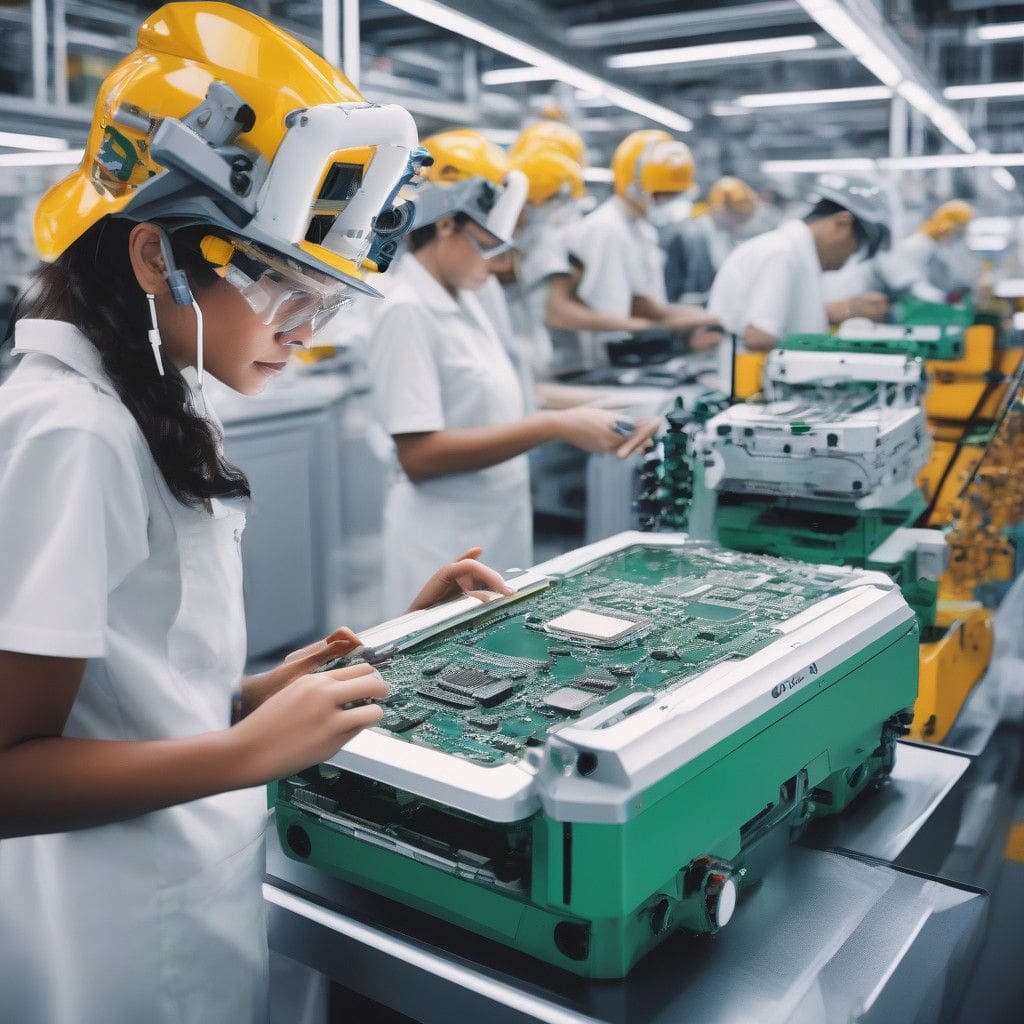Today marks a significant milestone for Apple as it officially launches the iPhone 16 series globally, making a notable expansion in its production strategy by establishing operations in Brazil. This development is not just about increasing production capacity; it represents a strategic pivot towards diversifying supply chains and adapting to changing global dynamics.
Traditionally, Apple’s manufacturing has relied heavily on China, but the addition of Brazil as a production site highlights the company’s desire to mitigate risks—specifically, rising tariffs and potential supply chain disruptions. The production of the iPhone 16 in Brazil is spearheaded by Foxconn, the Taiwanese multinational company known for assembling the majority of Apple products.
This factory, located in Jundiaí, São Paulo, will now mass-produce the basic iPhone 16 model. Although previous generations, such as the iPhone 14 and iPhone 15, were assembled in Brazil, they were released after initial production in China. This time, however, launching the iPhone 16 with production occurring simultaneously in Brazil is a first, indicating Apple’s commitment to establishing a more localized manufacturing ecosystem in South America.
One of the substantial advantages of producing the iPhone 16 in Brazil is the economic aspect. Brazil imposes high import tariffs on electronics, which can raise the retail prices significantly for consumers. By producing the devices locally, Apple aims to avoid these tariffs, thus keeping prices more competitive in one of the largest smartphone markets in Latin America. This is particularly pertinent given that budget-friendly smartphones tend to sell better in this region, making the base model of the iPhone 16 a tactical choice.
Furthermore, the decision comes as Apple is also expanding its manufacturing capabilities in India, where the iPhone 16 Pro and Pro Max models are being produced. Such dual expansions—one in Brazil and the other in India—underscore Apple’s strategic direction to distribute its manufacturing operations more widely. This approach is not merely a response to current trade conditions; it is part of a broader strategy to establish a resilient supply chain that can withstand geopolitical shifts and economic uncertainties.
The Brazilian factory, while not producing the higher-end Pro variants of the iPhone 16, focuses on meeting local demand for the more basic model. Apple’s move into Brazil is a timely response to a market that is increasingly looking for good-quality smartphones at reasonable prices. The popularity of entry-level models in Brazil indicates that Apple is not only responding to market demands but also positioning itself as a more accessible brand in a competitive landscape filled with local and international players.
The model of encouraging local production also aligns with global trends where manufacturers are pressured to localize production to reduce carbon footprints and promote job creation in the host countries. By establishing production sites in both Brazil and India, Apple not only enhances its image as a global citizen but also opens up opportunities for economic growth in these markets.
In conclusion, Apple’s expansion of iPhone 16 production to Brazil reflects a strategic and multifaceted approach to global manufacturing. By diversifying production, avoiding high tariffs, and responding to consumer preferences, Apple is gearing up to strengthen its foothold in crucial international markets. This move not only benefits the company but also promises to positively impact the local economies, providing jobs and fostering technological growth in South America.












